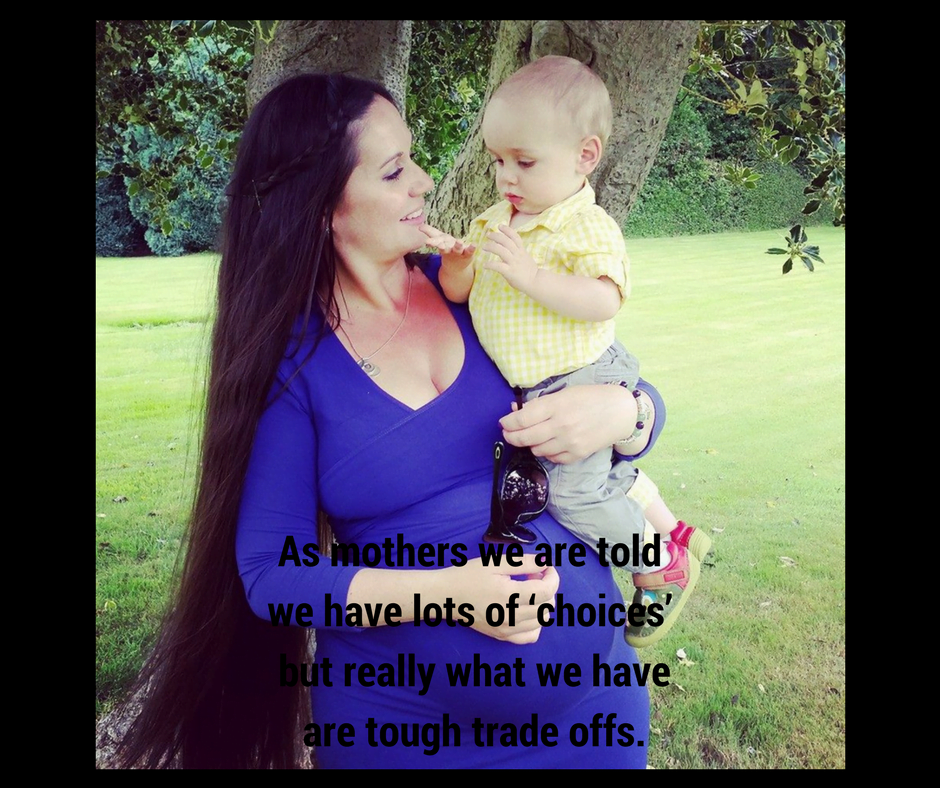The concept of “having it all” has long been ingrained in our societal narrative, suggesting that women can effortlessly balance successful careers, fulfilling relationships, and a thriving family life. However, the reality for many women paints a different picture. Juggling multiple roles and responsibilities often comes with inherent challenges and sacrifices. In this article, I will delve into the myth of “having it all” and shed light on the complex realities faced by women.
Unrealistic Expectations:

The notion of “having it all” places unrealistic expectations on women, creating an unattainable standard of perfection. The pressure to excel in all aspects of life simultaneously can lead to feelings of inadequacy and guilt when confronted with the inevitable trade-offs and limitations that arise.
Career Advancement and Work-Life Balance:
Achieving career success while maintaining work-life balance is a perpetual challenge for women. The pursuit of career goals often requires substantial time and energy, which can affect personal relationships and family commitments. Striking a balance between professional aspirations and personal well-being becomes a delicate juggling act that may require compromise and difficult choices.
The Motherhood Dilemma:
Motherhood adds an additional layer of complexity to the myth of “having it all.” Women often face difficult decisions regarding the timing of starting a family, the impact on career progression, and the ongoing struggle to balance maternal responsibilities with professional aspirations. The societal expectation that women should seamlessly manage motherhood while maintaining an illustrious career can be overwhelming and unrealistic.
Social Expectations and Gender Stereotypes:
Societal expectations and persistent gender stereotypes contribute to the myth of “having it all.” Women are often expected to excel in their careers, be nurturing caregivers, and maintain a perfectly organised household, all whilst exercising regularly and drinking enough water of course! These expectations perpetuate a notion of unlimited capacity, disregarding the need for support, flexibility, and shared responsibilities within partnerships and communities.
The Emotional Toll:
Balancing multiple roles and responsibilities can take a significant emotional toll on women. The pressure to meet societal expectations and the internalised desire to excel in all areas can lead to increased stress, anxiety, and burnout. The emotional strain can hinder well-being, jeopardise mental and physical health, and impact overall quality of life.
Redefining Success and Prioritisation:
Rather than chasing an elusive notion of “having it all,” it is essential for women to redefine their own version of success and prioritise based on their values and aspirations. Recognising that trade-offs are inevitable and embracing the freedom to make choices that align with personal fulfilment can lead to a more authentic and balanced life.
Advocacy for Change:
Addressing the myth of “having it all” requires societal change and collective efforts. Organisations and policymakers need to foster inclusive workplaces that support work-life integration, parental leave policies, and flexible work arrangements for both men and women. Challenging gender stereotypes and promoting equal partnership within households can help alleviate the burden placed solely on women.
Final Thoughts:
The myth of “having it all” perpetuates unrealistic expectations and places an undue burden on women to excel in all aspects of life simultaneously. The complex realities faced by women reveal the need for a more nuanced and inclusive understanding of success and fulfilment. By redefining priorities, advocating for change, and embracing the freedom to make choices that align with personal values, women can navigate their unique paths to fulfilment and well-being. Ultimately, the pursuit of a balanced and fulfilling life should not be measured against an unattainable ideal but should be grounded in individual aspirations, personal growth, and overall happiness.





2 comments
Hello, this is a very nice website. I also run a website. Mobile and PC versions are also operated as the best solution.
Golden-evolution is very proud of you:):)
https://www.golden-evolution.com/
Whatever solution or combination of solutions the operator chooses, the Evolution Group brand ensures the world’s best quality:):)
https://www.golden-evolution.com/